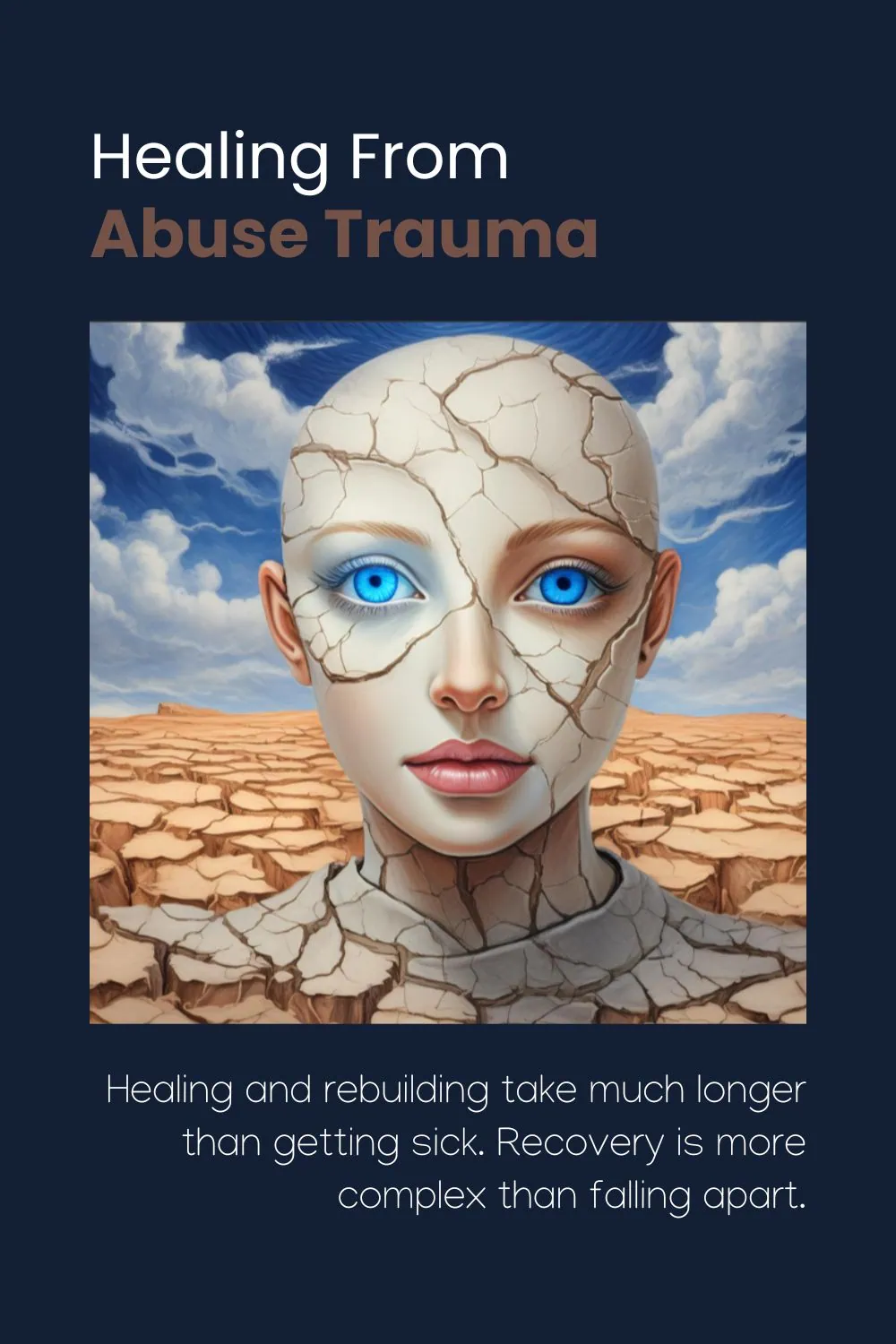Today's Thursday • 8 mins read
— By Pinky Jangra
Many people reading this will likely have experienced some kind of abuse in their lives. The path to healing from abuse and its related trauma can be long and multifaceted. One element of positive psychology that can help with healing is resilience.
Resilience is the process of adapting well in the face of adversity, trauma, tragedy, threats, or significant sources of stress—such as family and relationship problems, serious health problems, or workplace and financial stressors. It means “bouncing back” from difficult experiences.
— American Psychological Association
Some say resilience is not just about bouncing back, but coming back even stronger.
The good news is that resilience is not a superhuman strength that is rare to find. You, as just about anyone else, can build resilience in yourself.
A study by Ann S. Masten called Ordinary Magic, Resilience Processes in Development found that resilience, the ability to bounce back after a struggle, is, in fact, a very ordinary human trait:
You can learn to build resilience and heal yourself from abuse. These are 7 psychology-tested steps to help you get there.
7 Steps To Build Resilience And Heal From Abuse
Resilience does not come from rare and special qualities, but from the everyday magic of ordinary, normative human resources in the minds, brains, and bodies of children, in their families and relationships, and their communities.
That means the potential for resilience is within you. The potential to bounce back despite abuse is within you. And that is an incredible piece of information.

1. Accept The Situation
First of all, accepting the situation does not mean resignation.
Of course, we wish that the abuse had never happened, but the fact is that it has happened. There is nothing more paralyzing and weakening than trying to fight something that has already happened.
It’s a battle that you won’t win. You have a finite amount of precious energy. Resilient people realize this and divert as much of their energy as possible into affecting things they can change and looking to the future.
Acceptance is not a passive resignation to a bad life; it’s an active movement towards a better life. Work towards drawing a line under what has happened.
2. Care For Yourself
People who suffer abuse tend to suffer low self-esteem. It’s crucial to unlearn the idea that you are unworthy of love and care, and this starts by being your own best caregiver.
Build your strength and resilience by nurturing your mind, body, and soul with healthy food, meditation, yoga, and other exercises. Take a rest, pamper yourself, and spend time in nature. Do things that make you feel good.
This sends your brain the much-needed message that you are worthy and loved. When you feel loved, you feel you can handle anything! You become a force; you become resilient.

3. Combat That Negative Thinking
One of the major issues for people who experience abuse is that they have been trained to think negatively about themselves, others, and life. These negative thoughts create a weak state of being. To create a powerful state of resilience, we must think of strong thoughts.
The ‘Learned Optimism’ model by Martin Seligman helps us to do just that. Here’s an example of how you can use it to build your resilience: A-B-C-D-E.
By following this model, you can challenge negative beliefs and foster a more resilient mindset.
A: Identify the Adversity
- Example: My parents/partner hit me.
B: Identify Your Beliefs About the Adversity
- Example: For someone to treat me this way, I must be a bad person and unworthy of love and care. Something must be wrong with me, and people don’t like me. Relationships bring me pain.
C: What Are the Consequences of Your Beliefs?
- Example: I feel very low in self-esteem. I shy away from people and life. I will not seek new relationships for fear of being hurt. I will not stand up for myself because I must be in the wrong.
D: Question and Dispute Your Beliefs
Questions to Consider:
- Because one person mistreats me, does that mean that no one will like me?
- Am I responsible for another person’s behavior, or should they, as adults, regulate their own emotions and actions?
- How many people in my life treat me well, showing that I am worthy of love and care?
- Have I really done anything to deserve abuse?
- Is it really I who is at fault?
E: Based on Your Answers to the Dispute, Energize Yourself
Empowering Statements:
- I can’t control other people, and I am not responsible for their behavior.
- I can choose to be around good people.
- I am not at fault. I have loving people around me.
- No one defines my self-worth except me.
- There is never an excuse for abuse.
Note that stage A—adversity, does not lead to stage C—consequence. It’s stage B—belief about the adversity that leads to the consequence.
It’s also important to feel the energization stage as opposed to just giving it lip service. Emotions are critical in rewiring your brain into a more positive, powerful, and resilient state, as well as in motivating yourself to take positive action.

4. Take Control Of Your Social Circle
The study by the National Institute of Nursing Research found that social support for abuse victims was a key contributor to their resilience. You may not have had support around you in the past, and you can’t always control exactly who’s around you, but it’s very important to get a handle on your social circle.
Start seeking support groups and nurture relationships with the good people around you. Surround yourself with supportive, understanding, and caring faces, and don’t be afraid to ask for help.
Resilient people know they can’t do everything alone; they also know that we pick up on the energy and mindset of those around us, so it’s vital to surround yourself with people who will help you heal.
5. Practice Gratitude
When suffering the trauma of abuse, it can seem as if a heavy, dark cloud hangs above all areas of your life. Practicing gratitude is a powerful way to start lifting this cloud. No matter how dark life seems, we can always find at least a speck of light.
You might like to write a gratitude list at the end of each day, even if you can only find one thing to put on that list to start with. It might be as simple as gratitude for your food or a smile from a stranger.
As you train your brain to look for positive things to be grateful for, you’ll begin to notice more good things. As a result, you will feel stronger, better, and more resilient.

6. Change Your Perspective
What happened to you is just that; it does not define who you are. Abusive individuals have issues of their own, and their behavior has nothing to do with you; the truth is, you did not cause it.
Abuse tends to get passed down through families, cultures, and societal groups for many generations. This is a wider human issue; it’s not personal, and you’re certainly not alone.
Do these perspectives bring you relief? Can you change your perspective by finding more powerful truths about the situation?
This is what resilient people do. They regain control over how their story is told and how their future unfolds. Choosing your perspective puts you back in the driving seat.
7. Cultivate Hope For The Future
If you want to change your life and overcome the trauma of abuse, then you must create change. The secret to change is to stop fighting the old and start building the new.
Dare to dream, dare to expect good things, dare to make them happen, make goals, have a vision—about anything you like. It doesn’t have to be massive. Even a small plan for how you will care for yourself better is great.
Hope for the future builds your resilience by filling you up with strong thoughts, feelings, and energy. Critically, it starts the movement forward and away from your painful past.
You can’t be in your past at the same time as working on a better future. Choose your future.
Final Words
Resilient people do not see themselves as helpless victims of circumstance. They are aware that they have the power to direct how events unfold from that point forward. They can choose to be healthy, strong, and joyful.
Be patient and know that you’re the one who decides the next chapter of your life. Build your inner strength and the belief that you can bounce back stronger from being a victim of abuse.
Resilience is an ordinary human trait. You have it in you.
√ Also Read: How Strong People Build Their Resilience
• • •
Author Bio: Pinky Jangra is an author, speaker, and workshop facilitator. She helps people develop their psychological, emotional, and spiritual strength. She is one of the UK’s top new voices in the self-help industry, selected by Hay House and Psychologies Magazine. Find her on LinkedIn.
» You deserve happiness! Choosing therapy could be your best decision.
...
• Disclosure: Buying via our links earns us a small commission.
